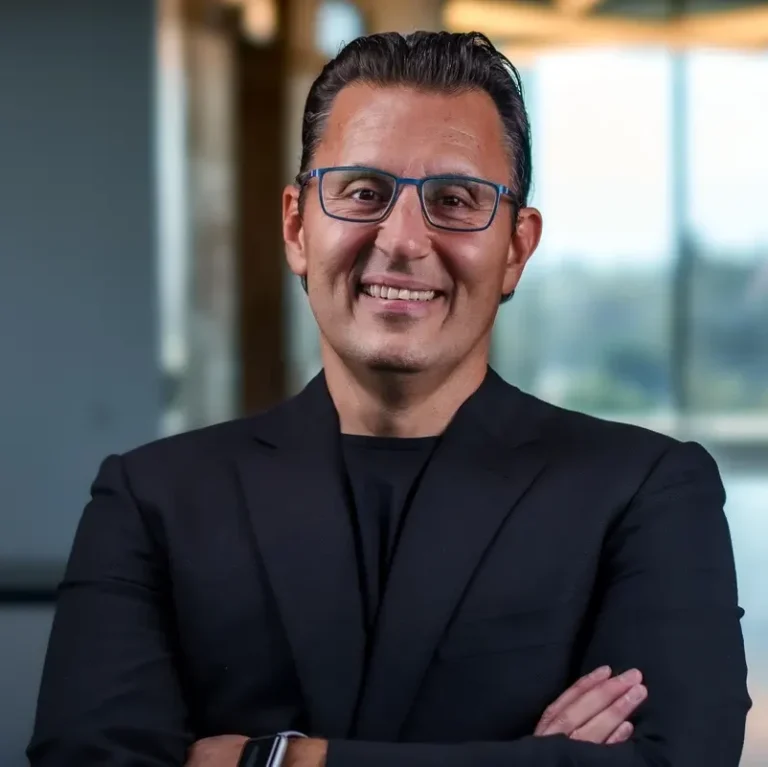
March 15, 2023
Henrique Dubugras, Founder & Co-CEO of Brex
How The Silicon Valley Bank Run Ignited A FinTech Reboot – Henrique Dubugras, BREX
On the heels of the pivotal collapse of Silicon Valley Bank (SVB), I recently talked with Henrique Dubugras, the Cofounder and Co-CEO of Brex, an integrated corporate card and spend management software company that has raised $1.5B in capital.
As companies frantically exited their SVB accounts at a record pace, in one of the world’s largest bank runs, Brex moved quickly to attract and support startups by fast tracking applications, maintaining card credit limits, and more than doubling FDIC insurance levels to $2.25M through their partner bank network.
Smart moves, as Brex has since received billions of dollars of deposits from thousands of SVB clients—and is now looking to potentially raise billions more to help companies with emergency operational and payroll bridge loans.
Henrique joined me for an episode of The Reboot Chronicles for a fascinating discussion about his journey, how they are rebooting the sector, what’s next in FinTech, and provide an exclusive look inside Brex.
Cofounding Partnership
Cofounded with Pedro Franceschi in 2017, after selling their payments business pagar.me in Brazil and moving to the U.S. The duo got together in their final year of high school with a passion for coding, turning into a zeal to create a B2B Fintech business; a successful first stint and subsequent sale to one of the largest payments companies in Brazil, Stone, left them with enough cash to embark on their next move.
Their journey is a one-of-a-kind fairy tale of teen dominance in Fintech—starting with a simple offering of credit cards for startups to more strategic business platforms with corporate cards, expense management, reimbursements, bill pay, and travel. And I think they are just getting started.
They identified a need, and began focusing on the issuing side of Fintech, for startups and technology companies. Startups were often not able to find tailored banking options with corporate cards. This led them to creating an underwriting model based on cash balances—a smart move that gave birth to Brex—enabling startup founders have Amex like corporate credit cards without the common guarantors or deposit money.
Brex as a go-to Provider
As a company whose cards are used in 100+ countries, Brex is a popular name amongst the latest Y Combinator batch. More than 91% of them chose Brex; the company has served over 20,000 customers from startups to enterprises, has billions of dollars in customer deposits under management, and tens of billions of dollars in transactions processed to date.
Pedro and Henrique have clear areas of demarcation and structure with one focusing on internal operations, direct reports, building the right systems and driving results across the company; while Henrique’s responsibility lies in external operations like fund raising, enterprise sales, investment partners and so on—“a pretty strong combination that has helped the company execute and see results at the speed” that they have.
Pivoting SMB Strategy
Brex evolved as a corporate card provider for startups, then marched on to business accounts for startups—and further fund raising left them with few more options in their bag- corporate card for e-commerce, tools and services. Doing it all was a tough route to scale, leading them to a point where they ultimately had to pivot away from almost 70% of their SMB customers.
“With SMB’s & the sheer volume of customers, we went onboarding, you know, few hundred customers a months to five, ten thousand customers a month—so everything got broken. All the resources went to fixing the scale and scaling. And what happened is that our core customers, start ups themselves, they started feeling that we weren’t taking care of them because all the support was really slow and broken, & we had to automate a lot of processes that missed a lot of nuances from startups. We got to this point where we saw competition increased. If we want to deliver a really good service, we need to focus right. We had obviously like raised money, saying that we’re going to do all these. But we saw where our business was going, where we wanted to take it, and a lot of the products we were building were products that required you to have some level of scale; So you know, the main business for Brex today besides credit cards is like spend management software. You need to have a lot of spend to want to buy a spend management Software. if you’re a small business, you don’t have that much spend. There’s not much to manage. We made the hard choice of focusing. Okay, we’re going to focus on startups and then mid market and enterprise, because they kind of want the products that we’re building more versus the SMB’s who wanted more loans and other things.”
Scaling Fintech Trust
With card based expense management at the core, Brex has managed to penetrate globally and into customer segments to scale their business and product offering. With lot of competition and trust at stake, scaling hinges a lot on VC partnerships and strategic deal making.
“There is going to be a lot Competitors that do well in the kind of like simple use cases, lower middle markets, You know, like I just need to add a couple controls. Something better than what the banks have. But when you start moving kind of like up market, right, the complexity you know, as you go global, as you grow to a lot of different systems, you have a lot more controls. The level of complexity increases a lot, and I would say there’s not a lot of companies that are able to do that, and I guess our scale just on the corporate card allowed us to invest so much. Since we started building these new products, we probably invested three to four hundred million dollars in building them over the last few years. And it’s a scale that’s hard to do.”
Reprioritizing quickly to adjust to customer demands and modeling product road map to fit go-to market strategies is something Henrique sees as a key to getting ahead of the competition. As for the role of Artificial Intelligence riding waves in every aspect of technology, enterprise software is no exception and “I would say we definitely think that a lot of enterprise software is going to change because, I think people have been saying that for a while, but I think now it’s definitely gotten to a point where it’s getting reliable enough they’d be able to do this. So we’re already using a bunch of stuff like automating receipts and providing insights.”
Going broader and deeper market wise is how he sees his company positioning itself in the next couple years. “We have a good flow of start up, so we’re still getting the earliest and brightest technology people to start with us, and the advantage they can stay with us until they’re really big.” To draw some lessons from Henrique’s entrepreneurial journey “dream big and focus; instead of trying to do all at once in your company, just be really good at a few things, and then keep going from there.”
As the ramifications of the bank run meltdown reverberate around the globe, we will be watching BREX, and other emerging FinTech brands, to see how this sector reboots into the future.











